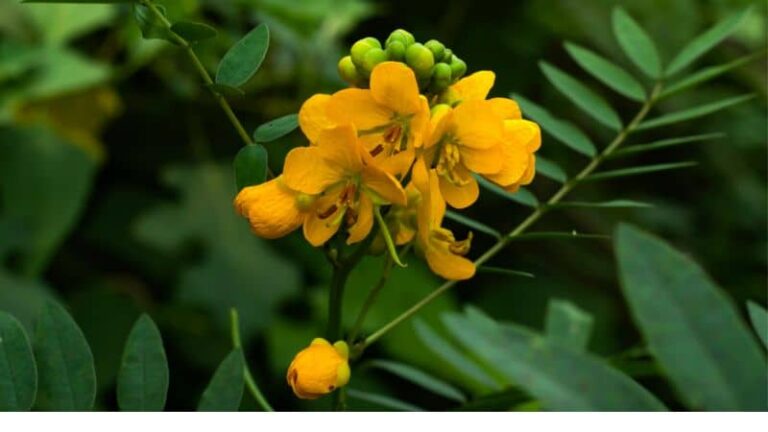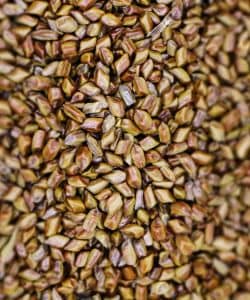Jamaican Dandelion Benefits
Jamaican dandelion plant grows wild in open fields and pastures in Jamaica. The plant is native to the warmer regions of the Americas, but it grows in many other locations.
Researchers report that Jamaican dandelion has medicinal promise. That’s because of the proven anticancer, antidiabetic, antibacterial, antiviral, and anti-inflammatory agents they extracted from the plant.

Jamaican dandelion should not be confused with common dandelion (Taraxacum officinale) that grows in your lawn. So what is Jamaican Dandelion?
What Is Jamaican Dandelion?
Jamaican dandelion is the name of the plant with the botanical names are Senna occidentalis or Cassia occidentalis. This plant also goes by local names including senna coffee, coffee weed, stinking weed and coffee senna and others.
Jamaican dandelion blooms small bright yellow flowers that are clustered in groups of two or four. The plant produces long, slender, sightly curved brown pods that contain its seeds.
Senna Occidentalis Health Benefits
The two dominant Anthraquinones that reasearchers identified in Senna occidentalis are Emodin and Chrysophanol.
These plant compounds are known to have medicinal benefits so let’s look at five benefits and uses of Jamaican dandelion.
- Antibacterial: One study isolated emodin from the leaves and the roots of Cassia occidentalis. The compound was tested and showed antibacterial activities against Staphylococcus aureus and Bacillus subtilis bacteria.
- Antimutagenic: Emodin from Jamaican dandelion also show the potential to prevent the mutation of some cancer cells. Recent studies suggest that when emodin is used with different chemotherapeutic agents, it retards the growth of some cancer cells.
- Laxative: Some studies report that Jamaican dandelion preparation is highly effective in cleansing the intestines prior to the procedures. An herbal tea made from the plant is commonly used in preparation for surgeries or colonoscopies.
- Diuretic: In Jamaican dandelion leaf tea is traditionally used to flush the body by increasing urination.
- Antidiabetic: Several studies report that Chrysophanol helps alleviate the progression of diabetes. One study reports that Chrysophanol significantly reversed the learning and memory deficits caused by diabetes disease.
Jamaican Dandelion Uses
So what is Jamaican dandelion good for? In different parts of the world use sections of the plant to treat gouts, hemorrhoids, asthma, coughs, edema and urinary tract infections.

In Jamaica the plant’s leaves and flowers are used to make an herbal tea for treating constipation and alleviating kidney problems. While dried Senna occidentals seeds are roasted, ground and used as a caffeine free coffee substitute.
Side Effects of Senna Coffee
Some reports say all sections of the Senna occidentalis plant are toxic to both humans and animals. So exercise caution when this plant.
Consuming to much Jamaican dandelion has reportedly caused stomach cramps, naseau, vomitng, and diarrhea.
Jamaican Dandelion and Pregnancy: There is no data regarding the effects of Jamaican dandelion use on pregnant or lactating women. Therefore, it may be wise to avoid Senna coffee if you are pregnant or breast feeding.
Conclusion
Jamaican dandelion is biologically known as Cassia occidentalis or Senna occidentalis. The plant has an unpleasant smell and the leaves taste bitter.
All sections of Senna Occidentalis are commonly used as traditional remedy. The leaves are steeped in hot water to make an herbal tea for treating constipation, coughs, and constipation. While \the dried roasted, seeds are used as a coffee substitute.
Jamaican dandelion is known to be toxic to both humans and animals so extreme caution is needed when using this plant.
Disclaimer: This article is for informational purposes only. Nothing stated on this website should be viewed as medical advice. Please consult with a Professional healthcare provider for medical advice.
